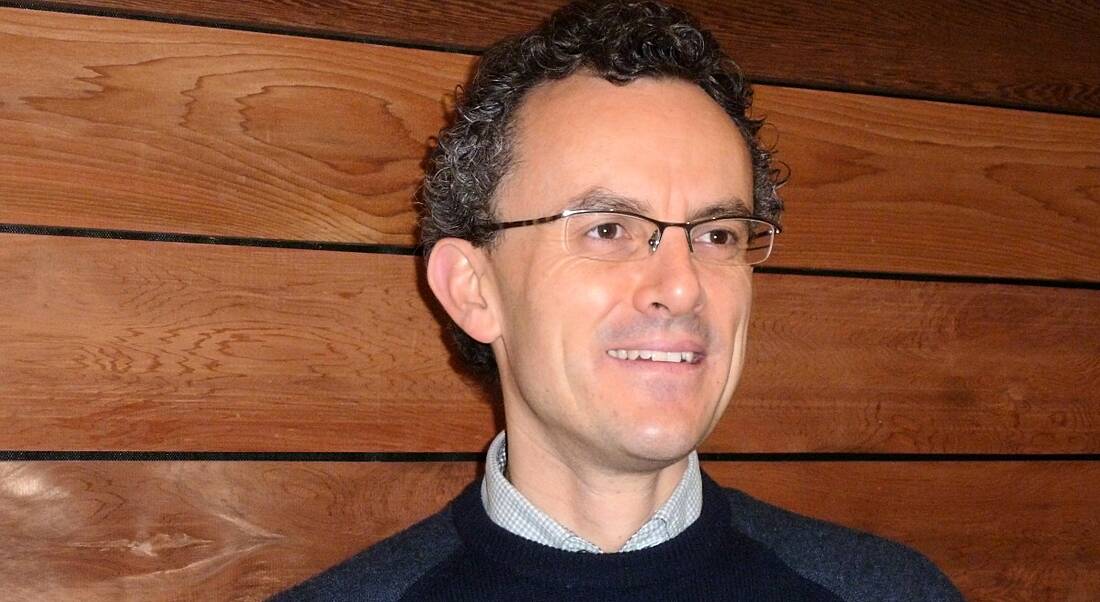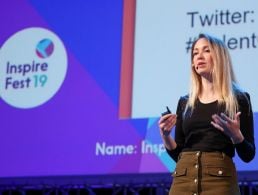Trying to anticipate the future of work can sometimes make one feel a little like Nostradamus, casting about in a murky future. For Thomas Jelley, of the Sodexo Institute for Quality of Life, it’s a little easier – he has research to back him up.
When we think of research, we usually think of lab coats and goggles, test tubes and test subjects. What we’re far less likely to consider is the ‘dry’ research that will inform our future quality of life, and how we will work.
This research is the driving force behind the Sodexo Institute for Quality of Life (an internal think tank at the global services company), which draws on the expertise of academics, experts and like-minded institutions to understand how quality of life contributes to the progress of individuals and the performance of organisations.
While you might think that research like this doesn’t matter, it could make all the difference to how you do your job and what your workplace is like in the near future. Covering everything from intelligent robotics to climate change – and encompassing hospitals, senior care, education, the military and the corporate sector, among many others – it creates a roadmap that Sodexo and other organisations can follow.
“Sodexo serves tens of millions of people a day who are in the workplace. It’s incumbent on us to understand our clients’ and consumers’ workplaces if we’re going to carry on serving them and helping to improve their quality of life,” said Thomas Jelley, vice-president of the Institute for Quality of Life.
Jelley will be a panellist at Inspirefest next month, offering his expertise on the future of work. That expertise is well backed up by a range of research undertaken at the institute, including its most recent roundtable in Singapore: intelligent robotics and the workplace.
The robotic future
Much has been made in recent years of robots taking our jobs. At that Singapore roundtable, Sodexo sought to delve into this hypothesis, and come up with solutions that could help prepare the workforce for working alongside intelligent robotics.
Where the dominant narrative focuses on the negatives of entwining robotics with a human workforce, the roundtable came to another conclusion: collaboration, rather than conflict, can make robots a benefit instead of a burden.
“A number of different scenarios present themselves in which intelligent robotics can help us to maintain and even improve the quality of life of people in the workplace. There are scenarios about mass unemployment, but there are also scenarios where researchers think … ‘What are the tasks that exist in this role? Which of the tasks could benefit from help? Which of the tasks could be enhanced through robotic help? Could be made more interesting? Less dangerous?’ We think that’s probably a healthier approach – a more interesting and productive approach – than to get stuck on, ‘Oh yeah, that job’s going to go’,” said Jelley.
He cited examples of advanced robotics taking the grunt work out of humans’ day-to-day tasks: someone who has to check gutters or get in a harness and explore the structural integrity of a building being able to send a robot in his or her place; someone working in a senior care facility being able to don an exoskeleton to help him or her carry people with mobility issues; late-night security guards being able to stay safe while sending robots on patrol.
In short, working together, not in contest.
Jelley offered a simple warning: “If we get stuck on a discourse that is us or them [robots], then it’s a bit of a zero-sum game. We should be focusing, we learned in Singapore, very much on enhancement – making work better, and looking at it from a task and activity basis rather than an us-or-them, zero-sum game.”
From court to corporate
It may come as no surprise – research being almost synonymous with the curious-minded – that Jelley is inspired in his work with the institute by an insatiable curiosity. That said, with a background in law – he read at King’s College London and the Sorbonne – and then in development, Jelley took a somewhat lengthy route to his current position.
Having worked on a number of legal cases involving questions of corporate responsibility, Jelley realised this was the area in which he wanted to work. He went back to education, studying for an MSc in sustainable development at University of Surrey. From here, it was straight to five years in Sodexo’s CSR department before moving on to the institute.
When asked how one feeds into the other, when they seem a million miles apart, Jelley responded: “[They’re] very distant in terms of the experience of the work, but, for a curious mind, there are some links.”
For Jelley, one arena led naturally enough into the next. His original motivation for reading law was curiosity about how things work, and he saw the discipline as a great basis for understanding relationships – between people, organisations and even nation states. Sustainable development, he says, taught him about the relationship between the human race and the rest of the natural world. Now, at Sodexo, sustainability is essential to a lot of what he, and his team, does.
“Working in our think tank, looking at challenges and questions of quality of life, it’s not that dissimilar. But, instead of having the sustainability agenda as the core, it has a quality of life agenda at is core. And the two are very closely linked, because without sustainability, there’s not very much possibility for quality of life,” explained Jelley.
The changing face of humanity, and of work
So, what’s next for the team at the Institute for Quality of Life? Where next will the drive for sustainable quality of life be applied?
According to Jelley, the next target Sodexo has in its sights is multi-pronged, and a far cry from robotics.
At a roundtable in the autumn, a gathering of experts will be discussing obesity, demographic ageing in South America and climate change. Though these areas may seem disparate, they are what Jelley refers to as “thorny topics”, and overlap in one key way: lack of political capital.
“These are three huge agendas that suffer from similar challenges: they’re all quite long-term issues, but they require short-term action; none of them is a political vote winner, so it’s difficult to get public policy going in the right direction; and then, once you do, they all can fall victim to changes of government,” said Jelley.
While these areas may not have a readily apparent effect on the future of work, they all – along with every piece of the institute’s research – feed into the overall concept of quality of life, which, generally speaking, comes full circle to how we progress as individuals and organisations.
As we have heard elsewhere, someone’s personal life can play a significant part in their working life and, if every employee can bring their authentic self to work, that has a huge knock-on effect on the workplace.
“Changes in the workplace are likely to change the way we think about work itself,” opined Jelley.
If the institute’s continued research is anything to go by, it looks like we’re going to have a lot of changes to prepare for.
Thomas Jelley will be speaking at Inspirefest, Silicon Republic’s international event connecting sci-tech professionals passionate about the future of STEM. Book now to join us from 6 to 8 July in Dublin.




